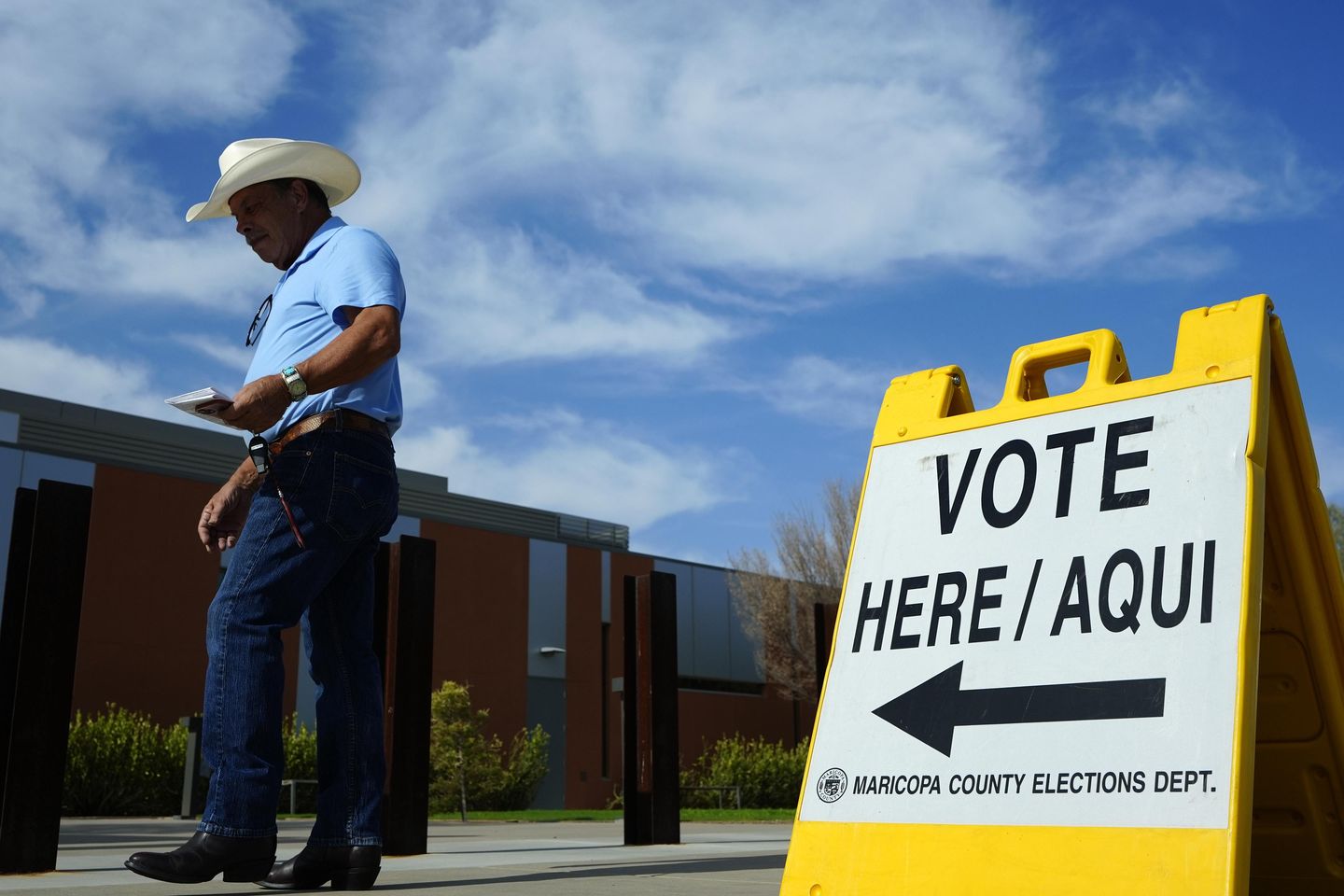The Arizona Supreme Court made a significant decision on Friday that could potentially impact the upcoming state and local elections. In a ruling that has garnered significant attention, the court declared that nearly 98,000 individuals whose citizenship documents had not been confirmed are now eligible to vote in state and local races. This decision has sparked debate and controversy among politicians, election officials, and voters alike.
The ruling stems from a case that was brought before the Arizona Supreme Court regarding the state’s voter registration laws. The case challenged the requirement for individuals to provide proof of citizenship when registering to vote. The plaintiffs argued that this requirement was unnecessarily burdensome and disenfranchised certain groups of voters, particularly those who may have difficulty obtaining the necessary documentation.
After hearing arguments from both sides, the Arizona Supreme Court ultimately sided with the plaintiffs, ruling that the requirement for proof of citizenship was unconstitutional. As a result, nearly 98,000 individuals whose citizenship documents had not been confirmed are now able to participate in the upcoming state and local elections.
The decision has been met with mixed reactions. Supporters of the ruling argue that it is a victory for voting rights and will ensure that all eligible voters have the opportunity to participate in the democratic process. They believe that the requirement for proof of citizenship was discriminatory and prevented certain individuals from exercising their right to vote.
On the other hand, opponents of the ruling argue that it opens the door to potential voter fraud and undermines the integrity of the electoral process. They contend that verifying the citizenship of voters is a necessary safeguard to prevent non-citizens from participating in elections. They fear that allowing individuals to vote without providing proof of citizenship could lead to abuses and compromise the legitimacy of election results.
The ruling has also raised questions about the broader implications for voter registration laws in Arizona and across the country. Some are concerned that this decision could set a precedent for other states to relax their voter registration requirements, potentially making it easier for non-citizens to vote. Others believe that this ruling underscores the need for comprehensive reform of the voter registration process to ensure that it is fair, accessible, and secure.
In response to the ruling, election officials in Arizona have announced plans to update their voter rolls to reflect the change in eligibility status for the nearly 98,000 individuals affected. They have also pledged to take additional steps to ensure the integrity of the electoral process and prevent any potential abuses.
Political leaders in Arizona have also weighed in on the ruling, with some expressing support for the decision and others voicing concerns about its implications. Governor John Smith issued a statement praising the court’s decision as a victory for voting rights and democracy. He emphasized the importance of ensuring that all eligible voters have the opportunity to participate in elections and pledged to work with state officials to implement the ruling.
However, not all politicians in Arizona are in agreement with the court’s decision. Some have voiced strong opposition to the ruling, arguing that it undermines the integrity of the electoral process and could open the door to potential fraud. They have called for additional measures to verify the citizenship of voters and ensure that only eligible individuals are able to participate in elections.
The ruling has also sparked debate among voters in Arizona, with opinions divided along partisan lines. Supporters of the ruling see it as a victory for voting rights and a step towards greater inclusivity in the electoral process. They believe that all eligible individuals should have the right to vote, regardless of their citizenship status.
Opponents of the ruling, on the other hand, are concerned about the potential for voter fraud and the impact on the integrity of elections. They argue that verifying the citizenship of voters is a critical safeguard to prevent abuses and ensure that only eligible individuals are able to participate in the democratic process.
As the debate continues to unfold, it remains to be seen how the ruling will impact the upcoming state and local elections in Arizona. With nearly 98,000 individuals now eligible to vote in these races, the outcome could potentially be influenced by this significant decision. It is clear that the ruling has sparked a contentious and divisive debate that will likely continue to play out in the coming weeks and months.









